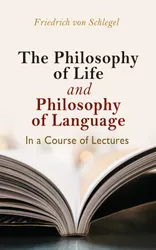In "The Philosophy of History," Friedrich von Schlegel presents a profound exploration of the interplay between history and philosophy, probing the processes that shape human experience across time. Written during the early 19th century, this work is emblematic of the German Romantic movement, characterized by its emphasis on subjective experience, the individuality of human actions, and the transcendent essence of culture. Schlegel'Äôs style combines lyrical prose with analytical commentary, offering readers a philosophical framework to understand historical events not merely as mere chronicles but as manifestations of a deeper, ongoing narrative of human spirit and progress. Friedrich von Schlegel was a pivotal figure in the Romantic literary movement and a leading thinker of the German Idealism that shaped European intellectual thought. His experiences as a poet, critic, and translator influenced his philosophical stance, leading him to grapple with the complexity of time and its implications for humanity. This work reflects Schlegel's quest to synthesize diverse philosophical influences, drawing inspiration from Hegel and Kant while asserting his unique vision of history as a dynamic interplay between the ideal and the real. For anyone interested in the intricate relations between philosophy and history, Schlegel's "The Philosophy of History" is an essential read. It invites readers to reflect on the narratives that define human existence, encouraging them to consider the ways in which our understanding of the past informs our future. This work not only contributes to philosophical discourse but also enriches the reader's appreciation of history as an artful and complex tapestry.

The Philosophy of History
Friedrich von Schlegel
book
The Philosophy of Life and Language
Friedrich von Schlegel
book
The philosophy of life, and philosophy of language, in a course of lectures
Friedrich von Schlegel
book
The Philosophy of History (Vol.1&2)
Friedrich von Schlegel
book
The Philosophy of Life and Language
Friedrich von Schlegel
book
The Philosophy of History : Complete Edition (Vol. 1&2)
Friedrich von Schlegel
book
The philosophy of life, and philosophy of language, in a course of lectures
Friedrich von Schlegel
book
